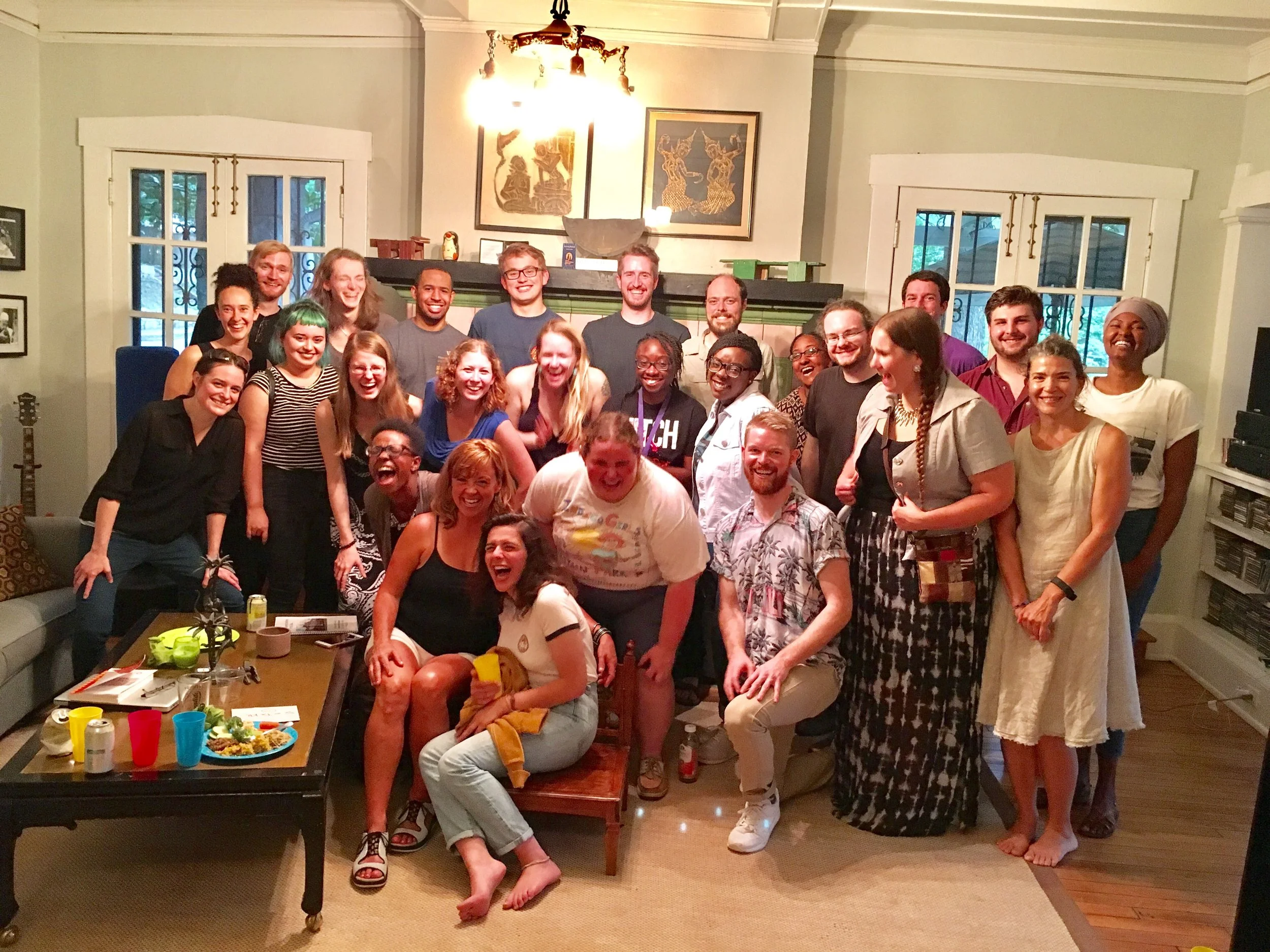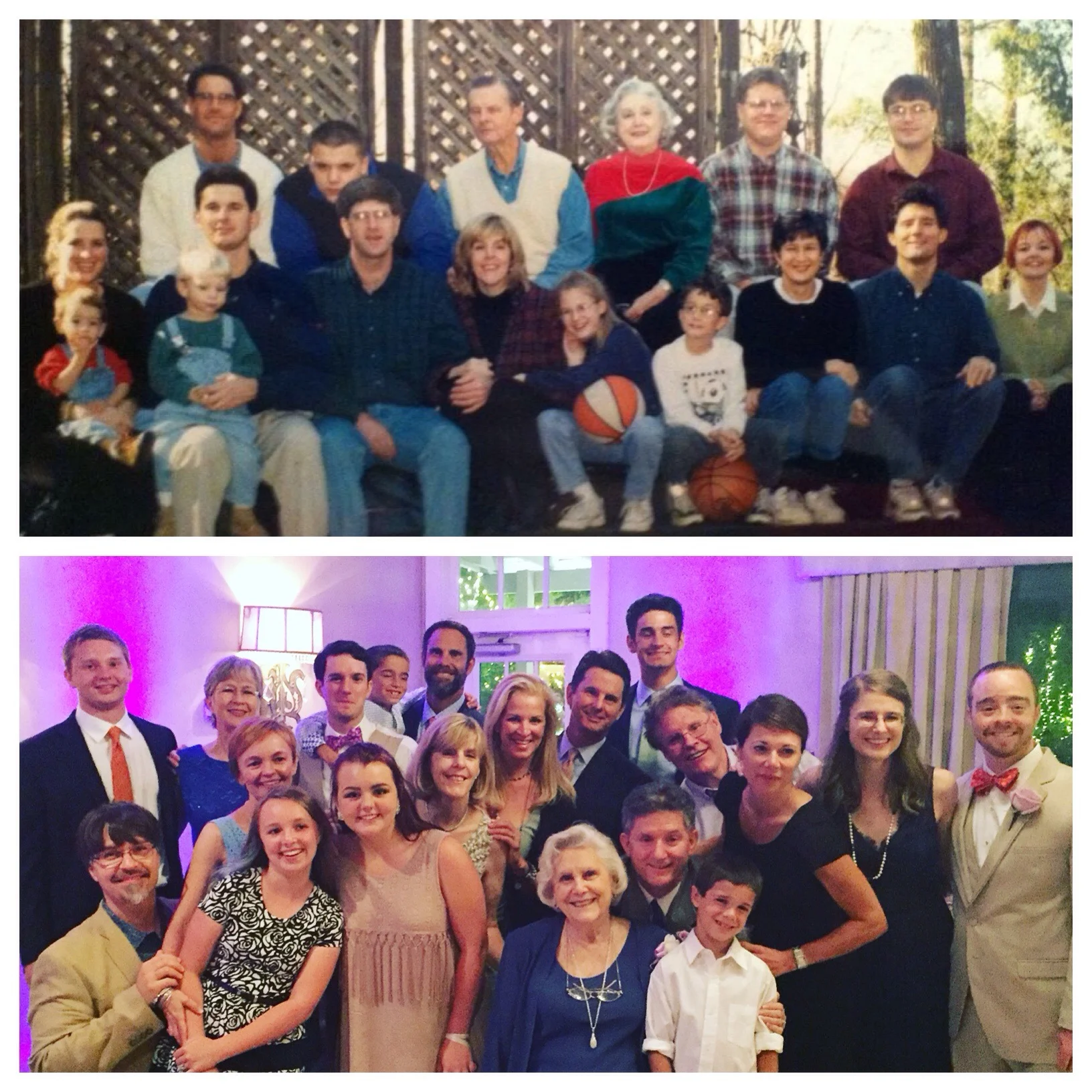The ties - and stories - that bind.
Is it okay to write about negative things in our lives? someone asked me the other day. It's a good question, and I wanted to give it a good answer.
On Friday night, I went to a workshop on making photo books, organized and presented by my friend Jiffy Page, who runs Pixorium here in Atlanta. She opened the evening by sharing this 2013 Bruce Feiler article from The New York Times. It's called "The Family Stories That Bind Us."
The essay is worth a read, but the main gist is that kids who grow up hearing their family's stories are better prepared to face challenges and stress down the line. "Developing a strong family narrative," Feiler calls it. It's about genealogy, but even more, it's about learning both the ups and the downs your family members have experienced. If the youngest generations gain a big picture of how families have built themselves up, emerged from hard times, leaned on each other for support, that gives children and teens the sense that they can do it too - and that they're part of something greater than themselves.
Learning both the ups and the downs - that's what stood out to me, in a world obsessed with showing only the best of itself on social media, what's on the surface. Sometimes families do that too. Probably every family does on at least one issue or one story. But I feel the depth of authenticity in this idea of family narratives, the doors of hope that honesty and vulnerability can open - this was hard, we didn't know if we would make it through, but here we are. And here you are. And you can make it, too.
And even when you're standing in a hospice room at a moment you thought would never come, you can shore up the goodness of decades, the sturdiness of story, the physical and spiritual presence of people, and understand that even though this is awful, this is sorrow and grief and wrong every way you slice it - there is an underpinning of good. Because you know those stories. Because you've created your own.
Is it okay to write about negative things in our lives? Whether we're simply journaling or writing for a larger audience, my overall answer is yes - with a couple of caveats that I've learned from books I've read (Tristine Rainer's Your Life as Story in particular) and my own writing teachers:
1. If you're writing for revenge, it's never going to get you anywhere good. And that's that.
2. Strive to tell the truth in love. This doesn't mean that you sweep something terrible under the rug. It means that you dig and explore, keep typing or scribbling, get to the heart of a tough matter, a tough person, a tough conversation - how you felt, what you did, and why. It doesn't mean that you're going to change your mind or perspective - but it might help you, and others, understand it a little bit better.
Acknowledging the difficult elements of our lives, whether it's in a piece of writing or a storytelling session around the dinner table, makes the good stand out even greater. Makes us realize that we've survived things we never thought we would survive, and come out on the other side. Gives the next generation the heart to be true to themselves, the understanding that hard times don't spell the end, the strength to construct their chapter in the ongoing story that binds them to history and, at the same time, encourages them to go out and make their own way.






